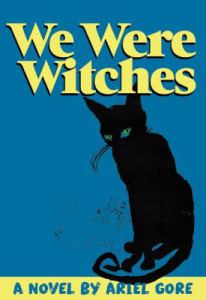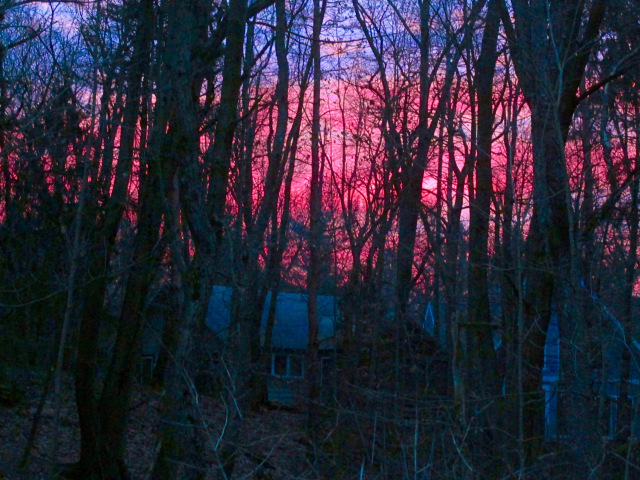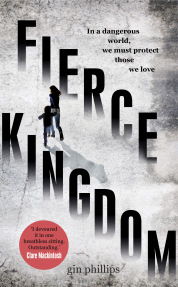Very excited to be interviewing Ariel about her new novel at Collected Works. Please join us! Here is a preview.
Why did you decide to consider WITCHES a “novel” rather than a kind of magical realism “memoir.”? Was it to give yourself a more spacious approach? Do the genres seem to blur?
I did start out thinking of it as a magical memoir, but in the end I think I pushed through too many of walls of what we call memoir. The genres blur completely, and in the end I guess the idea was that “novel” could hold all the hybridity. One review said that by calling it a novel I was saying that I was giving my art, not myself–and I liked that. I thought, Ah, I’m going to call everything a novel from here going forward, because I very much like giving my art.
Despite the deconstruction of life not having the same curve of resolution as fiction, in many ways the book is inspiring! Do you realize that now? Was it written innocently, or with a sense that redemption was coming—i.e. the heroine triumphs both structurally and actually?
I tried so hard to make it a tragedy, to really end on a sense of failure, to say, look failure is fine — all of the anti-Hollywood-ending things I could think of. But the problem is that we’re happy. The problem is that on our terms, we never failed. We don’t have the financial security some people might have, and we’re not married to men — those “happily ever afters” aren’t our lives, but I realized that when you completely invert the traditional plot structure, you still end up on the other side of it. Do you know what I mean? Like when you’re in the ocean and there’s a huge wave coming, and you’re out too far to run, you have to decide to go over it or under it. We went under it. The people who told me I had to conform to their ideas of motherhood and womanhood were full of shit, and their lives were different than mine, but they weren’t any easier. The world wasn’t any kinder to them for playing by the rules.
There is so much negative dialogue about so-called single or teen mothers in our society. The central strength the protagonist has in terms of philosophical resources is feminism. I love the reading list, and the amazingly refreshing look at The Scarlet Letter. Would you consider this to be second wave feminism or something else? The roots of feminist spirituality seem more west coast than east—is location a factor? The title of the book points to that core of identity and power. Thoughts on this?
The waves of feminism actually always confused me. We have been here always. But the time and place where I lived when Maia was a baby, the time and place in which this novel takes place, was–like all times and places—this unique Zeitgeist. When I landed in Sonoma County in 1990, I had no idea what that meant. In the same way that arriving here now in Santa Fe, I have not idea what that’s going to end up meaning. But what it meant to be in Sonoma County in 1990 was that the women who made the Motherpeace Tarot lived up there. Mary TallMountain was my neighbor. We had Sonoma County Women’s Voices, the oldest continually-published women’s newspaper in the country, and they took me in even though I could hardly speak I was so shy. For all of the shit feminists got for being anti-child, they are the ones who took me in. And their books took me in. So I lived my daily life in the welfare lines and college classes and on the streets of this suburb where a lot of old-school yahoos hated me, but magic was afoot. There were these incredible, multi-generational post-hippie feminist outsider spaces—both physical spaces and published spaces. When the yahoos ran me out of town and I ended up in Oakland, this complete revolution around queer identity was happening. So, again, my day-to-day life was often dealing with a homophobic, anti-mother family court system and getting buried in student loans, but the sense of magic and social engagement around me made everything feel expansive, too.
And — totally — I think West Coast feminism always included the spiritual. It’s something that has been very mocked, and I’ve certainly joined in on some of that mocking, but cynicism isn’t really getting us anywhere. I think lefties need to start finding ways they feel comfortable praying.
I love that you like my reading of the Scarlet Letter. I didn’t know it was weird! That book is a trip, but I don’t know how they usually talk about it in English Lit.
I think a lot of the authors on the reading list are considered second wave, and for sure part of my work with this book was to pay tribute to them, to acknowledge how many women and gender queers I’m standing on the shoulders of. I think a lot of people would be emboldened right now to read their bell hooks, and their Audrey Lorde, and their Adrienne Rich, and their Tillie Olsen, and their Leslie Feinberg, and their Ntozake Shange, and their Susie Bright, and their Gloria Anzaldua, and their Judith Butler, and their Diane Di Prima, and their Walt Whitman. Some of the words mean different things now, but there are some deep strategies illuminated in those books. I’m building my apocalypse library.
***
You can build yours, too. Start with:

- More





